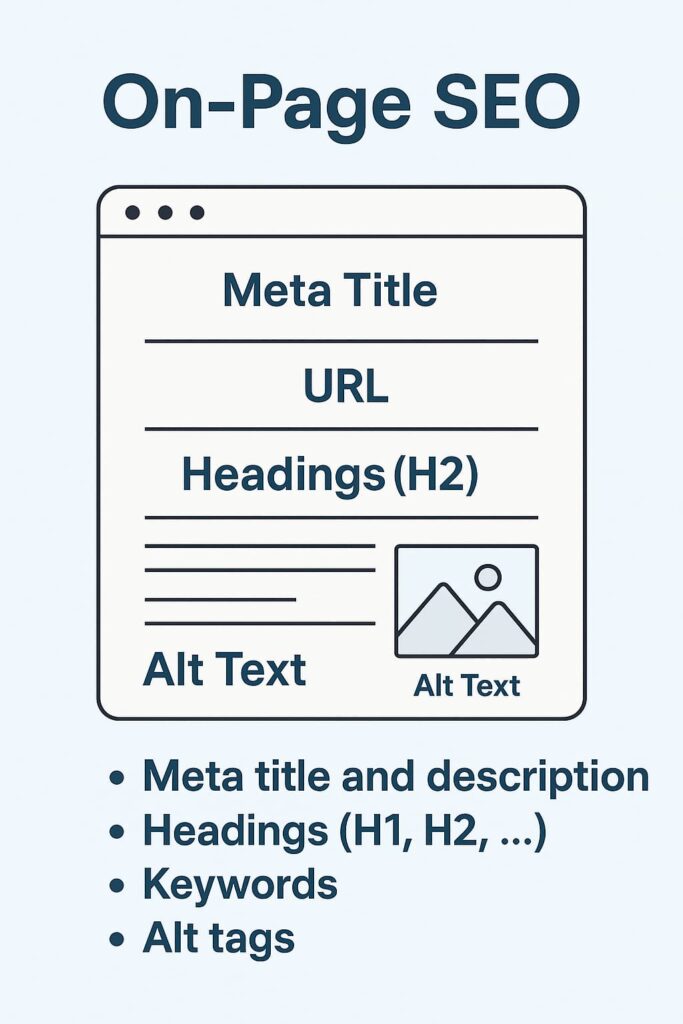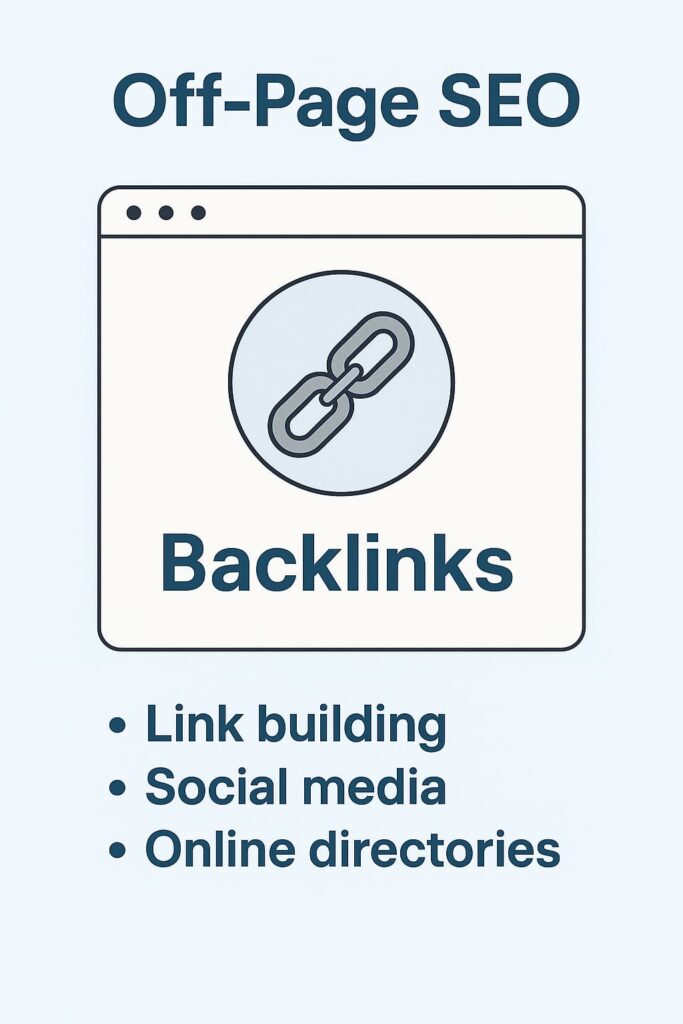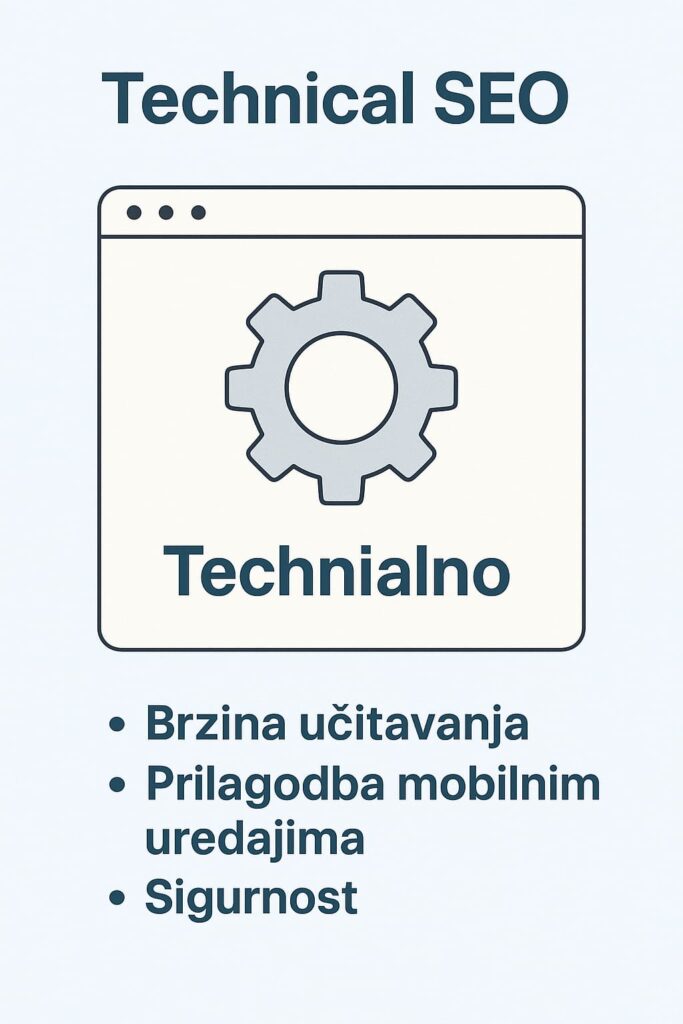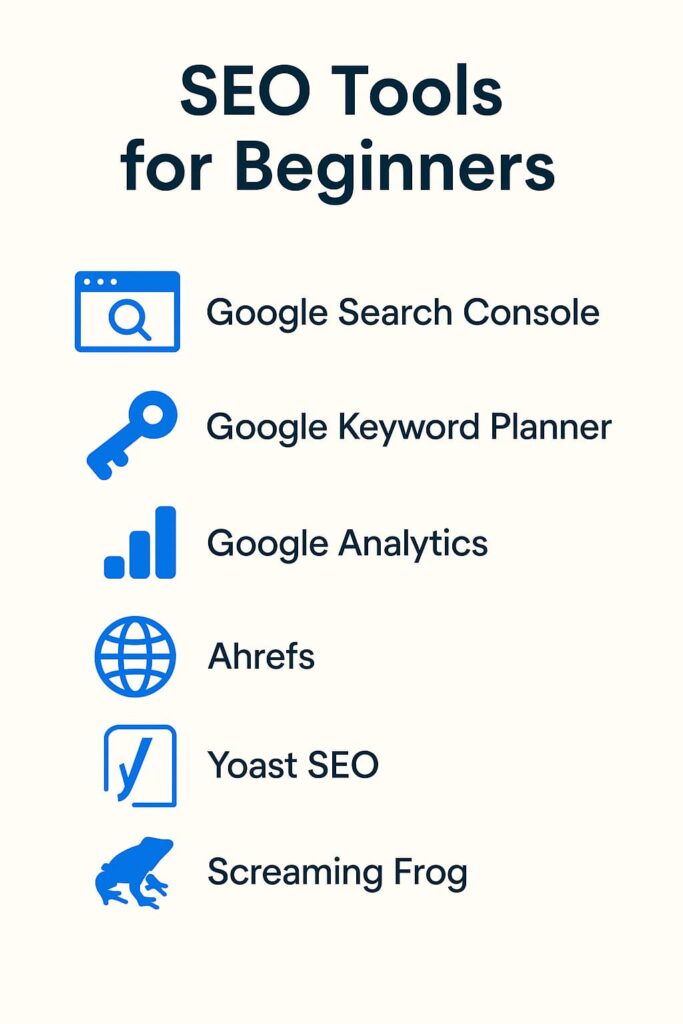
SEO Optimization for Websites (2025)
Published: June 5, 2025
If you’re a small business owner looking to rank higher on Google, you’re not alone. Many businesses still underinvest in SEO, even though 61% don’t invest at all yet, nearly half plan to start in 2025, and 71% of those who do report positive results. SEO (Search Engine Optimization) refers to a set of techniques used to increase the visibility of your website in search engines.
Put simply, SEO helps search engines understand your content and helps users find your site. In this beginner’s guide, we’ll break down the three core aspects of SEO – on-page, off-page, and technical – and share practical tips and tools (like Google Search Console, Ahrefs, Yoast SEO, and Screaming Frog) to improve your website’s ranking in 2025. The article is written in a simple, step-by-step style that’s easy to follow, even for non-experts.
On-Page SEO

On-page SEO refers to everything you can optimize directly on your website, such as the content itself, page titles, meta descriptions, URLs, and image tags. The goal is to make your content valuable and relevant for both users and search engines.
Start by researching relevant keywords (using Google Keyword Planner or Ahrefs), then naturally include them in your titles, headings (H1, H2), paragraphs, and image alt text. Each page should have a unique meta title and description to increase the chances of users clicking on your result. Use internal linking to help visitors navigate your site and to help search engines better understand your site’s structure.
On-page SEO tips:
- Write original, high-quality content that thoroughly answers your audience’s questions.
- Use relevant keywords in headings and throughout the page.
- Add a meta title and description that are clear and compelling (meta descriptions should be under ~155 characters).
- Keep URLs clean and meaningful (e.g.,
yourdomain.com/seo-guideinstead of random numbers). - Compress images for fast loading and add descriptive alt text with keywords.
- Use Yoast SEO if you’re on WordPress – it gives you real-time suggestions to improve your content, including keyword usage, readability, and snippet previews.
Off-Page SEO

Off-page SEO includes everything that happens outside of your website but still affects your ranking. The most important element is backlink building – getting other websites to link to your content. Search engines see backlinks as votes of confidence.
In fact, off-page factors account for roughly 50% of the ranking equation. But off-page SEO isn’t just about links. It also includes brand mentions, online reviews, and social media activity, which signal your site’s authority.
Off-page SEO strategies for beginners:
- Create a Google Business Profile and submit your business to online directories for initial backlinks.
- Publish shareable content (like how-to guides, infographics) that people naturally want to link to.
- Guest post on blogs in your industry to get exposure and backlinks.
- Share your content on social media – while these links don’t directly affect SEO, they can drive traffic and lead to organic backlinks.
- Monitor your backlinks using tools like Ahrefs, and analyze your competitors’ backlink profiles for opportunities.
Avoid shady tactics like buying links or spamming forums, which can trigger penalties from Google’s algorithms (like Penguin). Focus on building a trustworthy reputation over time.
Technical SEO

Technical SEO focuses on how your website is structured and delivered, so search engines can efficiently crawl and index your content. It’s the “under the hood” aspect of SEO.
Key technical SEO areas:
- Website speed: Slow websites frustrate users and lower rankings. Optimize by compressing images, using caching, and minimizing unnecessary code.
- Mobile-friendliness: Google uses mobile-first indexing, so your site must work well on smartphones. Use Google’s Mobile-Friendly Test to check.
- Sitemap and crawlability: Submit your XML sitemap via Google Search Console and ensure your robots.txt file isn’t blocking important pages.
- Fix broken links (404 errors) and redirects. Tools like Screaming Frog SEO Spider can help identify these issues.
- Use HTTPS: Secure websites (SSL certificates) are a ranking factor and build trust.
- Structured data: Adding schema markup helps Google display rich results (stars, event dates, product info) and better understand your content.
Google Search Console is your best friend for technical SEO. It shows indexing status, crawling errors, and Core Web Vitals (load speed, interactivity, visual stability). Check it regularly to stay ahead of issues.
Essential SEO Tools for Beginners

You don’t need every tool on the market to succeed in SEO. These are the most helpful for small business owners:
- Google Search Console (GSC) – Free tool from Google to check indexing status, sitemap submissions, and crawl errors. Essential for tracking your SEO health.
- Google Keyword Planner – Great for keyword research; shows average monthly searches and competition levels.
- Google Analytics – Not an SEO tool per se, but helps you track visitor behavior and measure the impact of your SEO efforts.
- Ahrefs – Premium tool for backlink analysis, keyword tracking, and competitive research. One of the most comprehensive SEO suites available.
- Yoast SEO (WordPress plugin) – Offers real-time advice on optimizing posts/pages with user-friendly color-coded indicators.
- Screaming Frog SEO Spider – Desktop app that crawls your site like a search engine, highlighting duplicate meta tags, broken links, redirect chains, and more. Great for audits.
Conclusion
SEO is a long-term investment, not a quick fix. But with consistent effort, you’ll see improvements in search visibility and traffic over time. In this guide, we’ve explored the basics of on-page, off-page, and technical SEO, giving you a strong foundation to optimize your website in 2025.
Keep in mind: value to the user always comes first. Search engines are constantly improving their ability to detect quality and relevance. Create genuinely helpful content, ensure your site is technically sound, and build a strong online reputation.
Track your progress using tools like Google Search Console and Analytics, and don’t hesitate to seek expert help if needed. Whether you do it yourself or with the help of professionals, SEO is one of the most cost-effective strategies to grow your online presence.
New web is waiting for you
We turn your website visitors into euros. Contact us and increase your profits today!